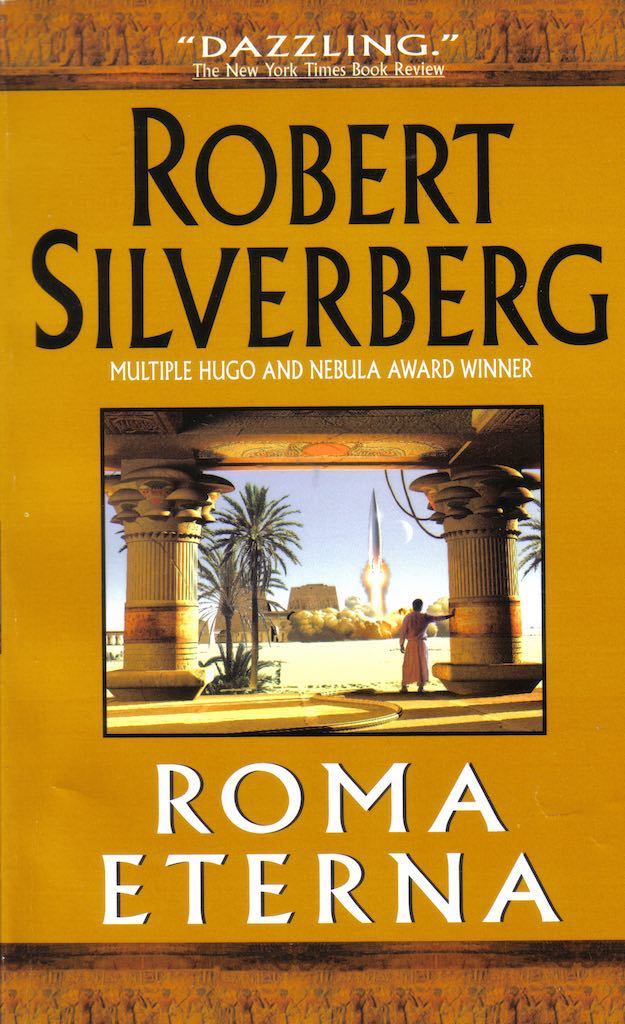Roma Eterna
Reviewed date: 2007 Jan 27
Rating: 3
449 pages
Let's do some free association. I say a word or phrase, and then you list whatever comes to mind. Ready? OK, here goes: Imperial Rome.
OK, time's up. Did you say gladiators and orgies? Of course you did. There's nothing more Roman than gladiators and orgies. And that's the real mystery of Roma Eterna. How did Robert Silverberg write a whole novel about imperial Rome without any gladiators and not a single orgy? I expected better from the man who once wrote soft-core pornography for a living.
Roma Eterna is a set of short stories chronicling an alternate history where the Roman empire never fell. It is meticulously researched and feels plausible, which is critical for an alternate history. It is too researched, in fact; Silverberg makes too many references to names, dates, and events that only scholars would recognize or care about. Only a select few people can appreciate Roma Eterna. Despite the book's limited audience, it is well written. Asimov could not have written it, nor Heinlein. Certainly not Arthur Clarke. (Jack Vance could have tried, but he would have written a far different story.)
I have few complaints with any of the stories, but together they are repetitive. Each focuses on powerful, influential men in Caesar's court, in times of crisis. OK, I get it--the empire is in crisis, a great man saves the Empire. Roma Eterna is a history of Roman emperors more than an examination of world under Roman rule. Silverberg offers no meaningful observations on how a Roman empire would have changed world history. Industrialization and progress seem to happen at about the same rate as the real world.
The best story in the novel is the last. Coincidentally, it is the only real science fiction story. A radical group of Jews, still upset at the failure of their attempted exodus from Aegyptus 3000 years ago, has decided to try another kind of exodus: they have built a spaceship and are aiming for the stars.
Roma Eterna is an adequate book, but unless you're a fan of the Roman empire, I suggest you skip everything except the last chapter, To the Promised Land.
